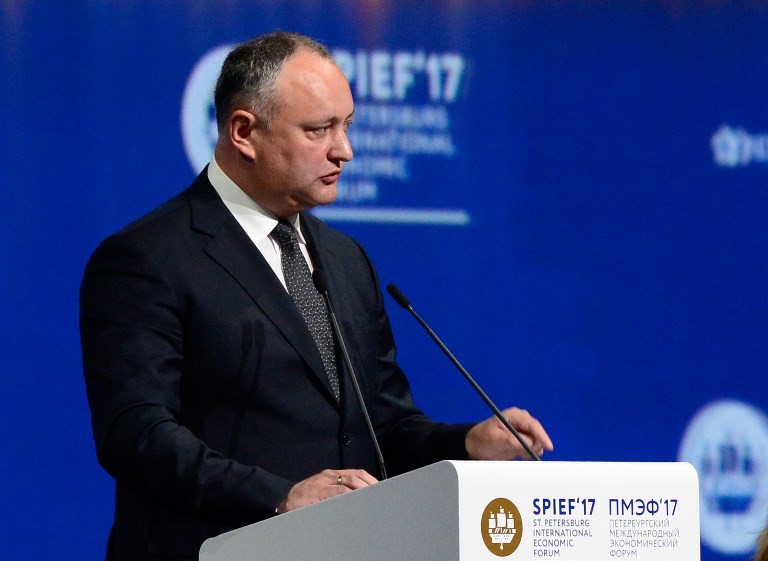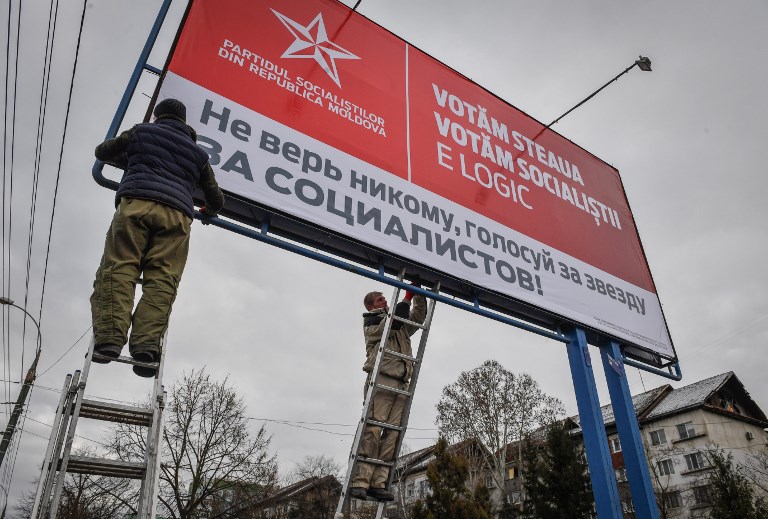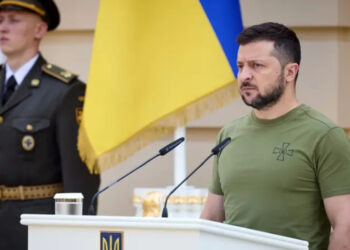Moldova, a small Eastern European country landlocked between Romania and Ukraine, experienced a sudden regime change last month.
Oligarch Vlad Plahotniuc and his Democratic Party of Moldova (DPM) unexpectedly lost power when two opposition parties – the pro-Russian Socialist Party of Moldova (PSM) and pro-E.U. bloc ACUM – announced their surprising partnership and formed a government in Europe’s poorest country.
Despite the incumbent DPM’s last-minute attempts to prevent the coalition by cutting off the Parliament building from electricity and dubbing the newly formed government illegitimate, its quick recognition by Russia, the E.U., and the U.S. led to the eventual collapse of Plahotniuc’s regime.
Now that the 53-year-old oligarch has left the country, the main question is what Moldova can expect next. In short: a political crisis.
Regime Change in Moldova
DPM’s hold on power in Moldova was perceived strong despite the inconclusive parliamentary elections in February 2019.
After coming to power as a minor partner in the pro-European coalition in 2010, Plahotniuc
gradually got rid of his former allies and transformed the impoverished ex-Soviet state into a personalist system, taking over key state institutions, judiciary, media, and security services while also prosecuting his opponents. The president’s office was stripped of all its powers. DPM had enough leverage on the opposition, while society was plagued with political apathy. So, how did the regime change occur in the first place?
Plahotniuc’s regime was brought down by Moscow, which skillfully manipulated him. Ever since a nominally pro-Western DPM monopolized power four years ago, it tried to rebuild its ties with Moscow. Even with these efforts yielding little immediate effect, Russia maintained the illusion of possible cooperation.
In 2018, when the cancellation of the capital’s mayoral election results triggered a sharp deterioration of Moldova’s relation with the E.U., making a deal with Russia became a priority.
Russia’s Game
Following the parliamentary elections of February, a power-sharing coalition between the Russia-sponsored PSM and the incumbent DPM was presented as a natural and the only choice. Pro-E.U. ACUM declined to cooperate with any other political party.
On June 3, Russian Deputy Prime Minister Dmitry Kozak, in charge of managing Russia’s ties with Moldova, made an unscheduled visit to Moldova’s capital Chisinau, where he seemingly approved a DPM-PSM coalition during his meeting with Plahotniuc. Plahotniuc had little reason to
doubt Moscow’s intentions. He agreed with Russia’s terms including signing a secret agreement with PSM at the Russian embassy.

Yet, Moscow was simply distracting Plahotniuc. Five days later, on the eve of the time limit for the coalition formation, de facto PSM leader (and president of the country) Igor Dodon met with Plahotniuc, seemingly to finalize the last details of the coalition agreement and their secret pact. Later that evening, Dodon unexpectedly announced snap elections. At night, the PSM formed a coalition government with ACUM. Plahotniuc was completely caught by surprise.
Dodon admitted he acted upon Russia’s directions. There are several possible reasons why Russia moved against Plahotniuc. According to Dodon, Moscow’s actions are a “payback” for Plahotniuc’s betrayal in 2010, when he switched alliances in the last moment and destroyed a Russia-engineered coalition in Moldova. Obviously, Moscow distrusted him sufficiently to avoid a deal. The U.S. and the E.U. were happy to play along with Russia to depose a toxic oligarch.
Moldova’s Challenges Ahead
Moldova now faces significant challenges ahead. On the one hand, the removal of Plahotniuc, who established direct oligarchic control over the state, and a peaceful transfer of power are significant wins.
On the other hand, pre-conditions, which led to the rapid rise of Plahotniuc and state capture, remain unresolved. The state institutions are weak, inefficient, and highly corrupt. The society is divided along geopolitical and identity lines, which are exploited by political elites. Furthermore, after years of political disappointment and ongoing socio-economic degradation, the public is far less engaged in politics and prone to emigration.
As the political crisis in #Moldova deepens, it is critical all stakeholders respect the rule of law, exercise restraint & find a way through with dialogue. (1/2)https://t.co/MsBlTYdKZr
— Guy Verhofstadt (@guyverhofstadt) June 9, 2019
Crucially, the current political partnership is not viable and will soon lead to another political escalation. The desire to bring down Plahotniuc created a situational alliance out of direct political opponents. PSM and ACUM have contrasting views on virtually all policy issues and utterly distrust each other. There are significant differences within ACUM as well, which is a bloc comprised of two competing parties. It is only a matter of time before conflict will erupt.
In the meantime, the initiative of Moldova’s politics lays in Moscow’s hands. The Russia-controlled PSM is most likely to try to fill the void left by Plahotniuc and benefit from the ongoing cleansing of DPM loyalists from the state structures.
The PSM is by far Moldova’s most popular political force, and their leader Dodon is the country’s most trusted and favorable politician. First legislative initiatives are likely to benefit PSM. While the ACUM-led government is focusing on economic issues, powers of presidential office (which puts key security agencies under Dodon’s control) as well as parliamentary power over other branches, are being expanded. This means that shortly after a switch to the proportional electoral system takes place, Dodon is likely to call snap elections to get a clear majority in the parliament.
The crisis is not yet over. Plahotniuc’s removal is a victory to Moldova, yet an elevation of a Moscow-dependent PSM to a single-handed rule is a threat to the nation’s future and the stability of the region.
Disclaimer: The views and opinions expressed here are those of the author and do not necessarily reflect the editorial position of The Globe Post.





















